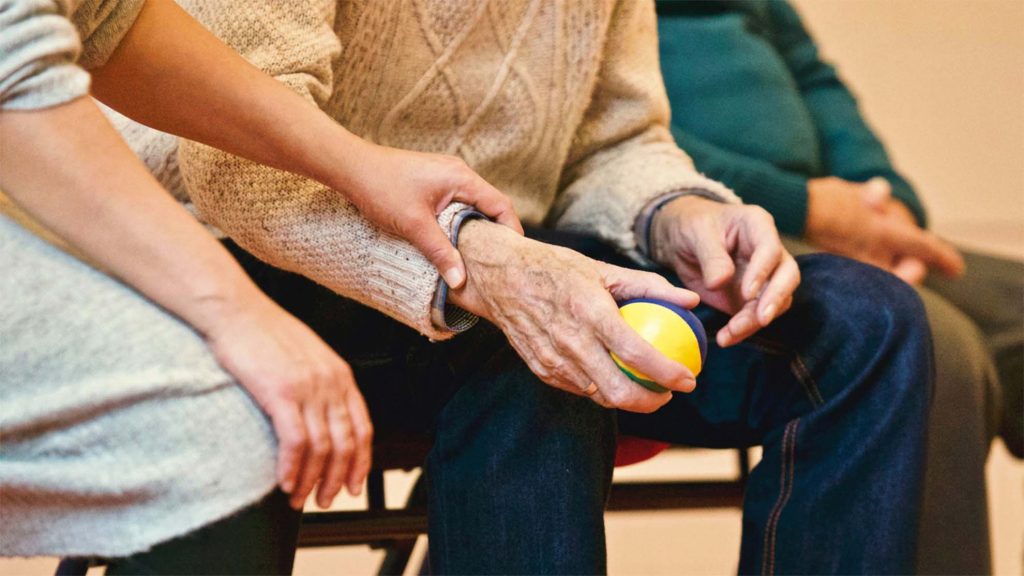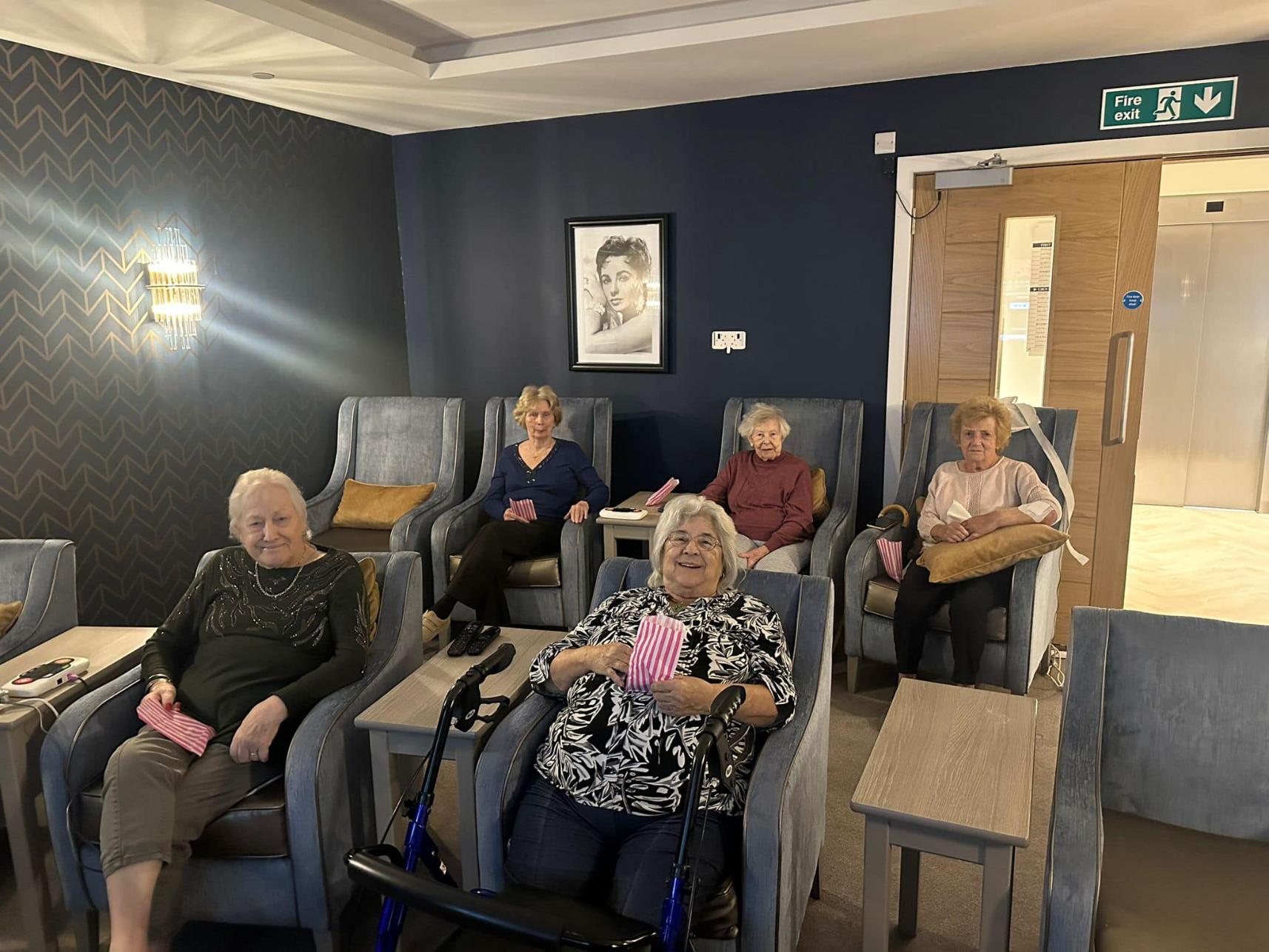The Importance of Person-Centred Care in a Nursing Care Home

Each care home will have unique care services and in-house facilities but one thing should always be consistent - a person-centred approach to care. With the demand for care homes continuing to increase, some caregivers can often lose track of the individual they are caring for beyond their health needs. Incorporating person-centred care ensures that residents receive the high-quality care they deserve. In this blog, we will describe the importance of person-centred care and how it can be integrated into nursing care homes alongside personalised care plans.
What is a Person-Centred Care Approach?
The practical undertaking of a person centred care approach will be different for every care home, however, it is based on personalising the care a resident receives based on their individual needs. It is a compassionate way of delivering care, taking into account people's preferences and making informed choices that will improve their quality of life. It typically involves the individual receiving care, the care providers and residents' loved ones. This ensures that residents still have independence over their daily lives and continue doing the things they love whilst receiving the support they need.
Adopting a person-centred approach to care in nursing care homes ensures each resident is treated with dignity and respect at all times. Providing personalised care is beneficial to each care type, however, it especially benefits those who have more complex individual needs. It can often also be referred to as tailored or personalised care.


Benefits of Person-Centred Care
To ensure a better understanding of how important this approach is, we have outlined the main benefits of person centred care to everybody involved.
Improved Quality of Care
When care becomes tailored to the individual, it naturally leads to an improvement in the quality of care provided. Person-centred care ensures that the unique needs and preferences of each resident are the top priority. This personalised approach allows caregivers to address not only the physical health of the residents but also their emotional, social, and psychological well-being. By focusing on the individual as a whole, rather than just their medical condition, nursing care homes can ensure residents constantly feel supported, safe and comfortable with a person centred care approach.
Peace of Mind for Loved Ones
For family members and loved ones of those residing in nursing care homes, knowing that their relative is receiving person-centred care can provide immense peace of mind. It reassures them that their loved one's needs are being met in a way that respects their individuality and promotes their physical and emotional well-being. Involving family members in the care planning process and keeping them informed about their relative's progress means care home teams can strengthen trust and communication meaning loved ones can rest assured that their loved ones are receiving the best possible care.
Maintains Independence and Dignity
By empowering residents to make choices about their daily lives, such as what they eat, how they spend their time, and which activities they want to partake in, care homes can ensure they enjoy every day. This enhances the residents' quality of life and helps maintain their self-respect and dignity, especially whilst they combat the physical or cognitive challenges that some days may bring.
Encourages Connection Between Residents and Care Providers
When homes adopt person-centred approaches to care, strong relationships between residents and care providers are formed. By getting to know each resident as a unique individual, nurses or carers can develop a deeper understanding of their needs, preferences, and life history. This encourages a sense of trust, empathy, and mutual respect, creating a supportive environment where residents feel valued and understood. It also makes the resident feel more at home, as the care providers almost become an extended member of the family, which also contributes to a sense of belonging and community within the care home.
The Importance of Person Centred Care in Nursing Care Plans
In order to provide seamless person-centred care to residents, care homes should look to incorporate personalised care plans. These treatment plans outline both the personal and health needs and goals of each resident as well as their history, medical records, daily preferences and intervention processes. Nursing care plans serve as a roadmap for those providing care, ensuring that care is consistent, coordinated, and holistic. By tailoring care plans to the unique needs of each resident, nursing care homes can ensure residents receive the highest quality of personalised care.
How Do Nursing Care Homes Deliver Person-Centred Care?
Delivering person-centred care is something that involves multiple individuals. This includes nurses, healthcare assistants, other support staff, the residents and their families. Key strategies for delivering person-centred care include:
- Comprehensive Assessments: Care home teams conduct thorough assessments to identify each resident's unique needs, preferences, strengths, and challenges.
- Independent Daily Choices: Residents are provided support with constant support over any choices they make and are given the choice whenever it's possible.
- Regular Communication: Offering open, honest, and respectful communication with residents and their families, involving them in care decisions and keeping them informed about their loved one's progress throughout their stay at the nursing care home.
- Consistent Evaluation and Adjustments: Staff regularly review and update care plans based on the resident's changing needs, preferences, and goals.
- Staff Training and Development: Providing ongoing training for care staff to ensure they have the knowledge, skills, and attitudes necessary to deliver person-centred care effectively to a variety of needs.
- Creating a Supportive Environment For Residents: Offering an environment where residents feel valued and supported ensures they can live their best lives each day.

The Role of English Care Regulators in Person-Centred Care
In England, care regulators play a crucial role in promoting and enforcing person-centred care standards in nursing care homes. Regulatory bodies such as the Care Quality Commission (CQC) set out clear guidelines and expectations for care providers, ensuring that they deliver services that are safe, effective and caring. As part of the inspection process, the CQC assesses how well nursing care providers are meeting the principles of a person-centred care approach, including their ability to involve residents in decision-making, respect their dignity and autonomy, and tailor care to their individual needs.
Receive Personalised Care at Yarnley House Care Home
At Yarnley House Care Home, our residents are at the heart of everything we do. We offer unrivalled levels of residential care, nursing care, dementia care and respite care and understand the importance of person-centred care. Combining our person-centred care approach, compassionate staff and regular engaging activities creates a warm and nurturing environment where residents feel valued, respected, and supported.
By combining person-centred care with our in-house facilities, residents have access to everything they need to continue doing the things they love most. Whether they are interested in our private gardens, hair salon or cinema room, there is something here for everybody at our care home in the New Forest.
Get in Touch with Our Friendly Team Today
To find out more information about our person-centred care at Yarnley House Care Home or to see it in practice for yourself, please get in touch with a member of our team or book a tour around our wonderful home. We look forward to hearing from you.






